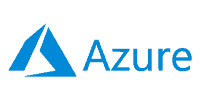Microsoft for App Development
Developing and Deploying Enterprise-Grade Applications with Microsoft
Microsoft technologies are used by businesses worldwide to develop software, services, and solutions for enhancing their operations. Today, almost every business uses an application running on the Microsoft tech stack to power their operations, drive sales, and maximize profits.
Software solutions developed using Microsoft technologies help your business in many ways:
- Allows businesses to create highly intuitive software tailored to their unique needs that helps in ensuring sustained organizational growth.
- Offers a wide range of solutions for companies to reduce their operating costs, and generate new revenue streams and business opportunities.
- Industry-leading interoperability, data governance, and data integration solutions to better connect with customers, enhance productivity, and save costs.
- Helps automate routine or repetitive tasks to free employees from mundane work and help them focus on more demanding and meaningful tasks.
- Enables businesses to stay up to date, respond quickly and intelligently, and adjust their products and services to match new customer preferences and demands.
- Helps companies build meaningful relationships with their customers and improves their ability to communicate appropriately with the target audience.
- Provides companies with world-class, in-built security solutions to protect their data assets and prevent cyberattacks.
- The Azure cloud platform from Microsoft helps build, run, and manage applications across multiple clouds, on-premise, and at the edge using any tools and frameworks.
Without internal and customer-facing apps, business performance suffers. Outsource your app development to the right tech partner.
Tech Stack
Power Your Success with Microsoft's Enterprise-Grade Technology Stack
When you decide to develop a business application, the next biggest thing that should be on your list is choosing the right tech stack for your application. Most of the modern enterprise applications trust Microsoft’s technology stack for its dependable performance.
Top technologies of the Microsoft tech stack:







- An open-source platform for building desktop, web, and mobile applications that can run natively on any operating system.
- Includes tools, libraries, and languages that support modern, scalable, and high-performance software development.
- Various implementations of .NET allow .NET code to execute on different operating systems, such as Linux, macOS, Windows, iOS, Android, etc.
- .NET is popular among developers as it supports building high-performing applications, and offers ease of development, along with extensive community support.
- Microsoft SQL Server is a relational database management system (RDBMS) that offers reliable server security using encryption and offers a set of processes to facilitate the fetching, recovering, and restoring of data quickly.
- Bundles a variety of features to support data management, transaction processing, business intelligence, and analytics tools with SQL server.
- All editions of Microsoft SQL Server come with advanced security features including row-level data security, dynamic data masking, and transparent data encryption.
- Most of the features in Microsoft SQL Server are also supported in Azure SQL database, a cloud database service built on the SQL Server Database Engine.
- A web-based collaborative platform, primarily sold as a document management and storage system that integrates natively with Microsoft 365.
- Commonly used for enterprise content and document management, file hosting services, intranet and social network, team collaboration, and custom web application development.
- SharePoint allows developers to follow a structured approach to developing modern applications that do not necessarily depend on .NET.
- Helps develop mobile-ready and responsive web applications quickly and supports client-side as well as server-side development.
- An open-source, server-side web application framework that allows programmers to build dynamic websites, applications and services.
- Programmers can write ASP.NET code using any language supported by the .NET framework.
- Helps build large and complex applications with minimal code and also reduces the application development time and costs involved.
- ASP.NET Core, the successor of ASP.NET, is a re-implementation of ASP.NET as a modular web framework which uses the new open-source .NET Compiler Platform and is cross platform compatible.
- Azure is Microsoft’s public cloud computing platform that offers a broad range of cloud services, including compute, analytics, storage and networking.
- Provides a range of capabilities, including software as a service (SaaS), platform as a service (PaaS), and infrastructure as a service (IaaS).
- Supports multiple programming languages, tools, and frameworks, including Microsoft-specific and third-party software and systems.
- Since Azure cloud services are sorted into nearly two dozen categories, it supports extremely diverse use cases.
- Visual Studio is an integrated development environment (IDE) from Microsoft used to develop websites, web apps, web services and mobile apps.
- It uses Microsoft development platforms such as Windows API, Windows Forms, Windows Presentation Foundation, Windows Store, and Microsoft Silverlight to produce both native code and managed code.
- Visual Studio serves as an efficient platform for developers to code, debug, and test their applications with improved accuracy.
- Visual Studio is not a language-specific IDE as it supports developers to code in 36 different programming languages.
- Microsoft Web API framework is used to build application programming interfaces that can push data to the servers and fetch information that needs to be displayed to the users.
- Works with protocols such as HTTP, WebSockets, SSL, JSON, and XML, and is compatible with mobile, desktop or web applications.
- Does not pose any limitations to use just a single interface or technology for interacting with its users.
- Web APIs are highly useful in the implementation of RESTFUL web services using .NET framework and help develop HTTP services to reach out to client entities like browsers, devices or tablets.
- Microsoft 365 (Office 365) is a SaaS-based suite of productivity software, collaboration and cloud-based services owned by Microsoft.
- Encompasses online services such as Outlook.com, OneDrive, Microsoft Teams, Yammer, Word, Excel, PowerPoint, OneNote, SharePoint, and more.
- Specific editions with productivity solutions for business, home, and enterprises are available.
- Comes with a bundle of innovative Office apps, intelligent cloud services, and world-class security to help businesses achieve more.
- Dynamics CRM is a centralized, data-driven software solution for businesses to manage, track, and store information related to potential customers.
- Predictive insights and data-driven buyer behavior enables businesses to identify, target, and attract the right leads—and then turn them into customers.
- Benefits your individual business teams, including sales and marketing teams, customer service agents, field service teams, and project service automation teams.
- Caters to different lines of business, including sales and service teams, small and medium businesses, commerce, marketing, customer data platforms, finance and operations, human resources, and supply chain.
- WCF is a framework for building service-oriented applications that help send data as asynchronous messages from one service endpoint to another.
- WCF makes the development of endpoints easier than ever, as the framework is designed to offer a manageable approach to creating Web services and Web service clients.
- Due to its extreme flexibility, WCF integrates easily with other Microsoft technologies.
- WCF offers numerous features to support service orientation, interoperability, service metadata, multiple message patterns, security, data contracts, transactions, and extensibility, to name a few.
- WPF is a resolution-independent framework that uses a vector-based rendering engine to take advantage of modern graphics hardware.
- Provides a comprehensive set of application development features such as Extensible Application Markup Language (XAML), controls, data binding, layout, 2D and 3D graphics, animation, styles, templates, documents, media, text, and typography.
- WPF is part of .NET, so you can build applications that incorporate other elements of the .NET API.
With the right partner, you can simplify decisions and select the ideal technology stack for your business
Advantages of Microsoft Tech Stack
Benefits of Using Microsoft Technologies in Application Development
- Ability to develop high-quality low-code no-code software solutions
- Highly flexible solution for developing enterprise software because of its seamless integration with other platforms
- Accelerates speed-to-market and reduces deployment costs
- Easy to access community and vendor support
- Better support, maintenance and reliability of the tools, languages, and applications
- Microsoft’s commitment to quality and stability helps avoid costly downtimes and disruptions
- Most platforms/ frameworks in the Microsoft tech stack are designed to work together seamlessly
- Offers a set of software products and technologies that work together to provide complete solutions for businesses
- Provides app developers with several debugging and tracing tools to identify issues earlier itself, during testing
Microsoft technologies enable rapid app creation, but true benefits come with the right software development partner
Our Expertise
Fingent’s Expertise in Microsoft Technologies & Development Tools
Architecture
- Azure Kubernetes Service
- Microservices
- Microsoft Azure
- SOA
Database
- Microsoft SQL
- Azure SQL Database
- Redis
- MariaDB
- MongoDB
- PostgreSQL
- Cosmos DB
- Apache Cassandra
Frameworks
- Angular
- AngularJS
- nodeJS
- .NET MVC
- .NET Framework
- Backbone JS
Design and User Experience
- Visual Basic
- Visio
- Expression Web
Architecture
- Azure Kubernetes Service
- Microservices
- Microsoft Azure
- SOA
Platforms & Tools
- Microsoft.NET
- Microsoft BizTalk Server
- Microsoft Team Foundation Server
- Microsoft Visual Studio
- GitLab
- Bitbucket
- HIBERNATE
- nunit
- NLog
- Microsoft Enterprise Library
Technology
- AJAX
- ASP.NET Core
- C#
- DHTML
- JavaScript
- jQuery
- Entity Framework
- JSON
- Net Dapper
- ASP.NET Web Forms
- Visual Basic
- .NET WCF
- XML
- XSLT
Business Intelligence
- Microsoft Business Intelligence
- Microsoft Power BI
- SQL Server Integration Services
- SQL Server Analysis Services
- SQL Server Reporting Services
- SQL Server Business Intelligence
Some of Our Top Offerings
Tailored Microsoft Development Services That Drive Real Business Results
Fingent focuses on empowering our clients to maximize value from their business applications and environments driven by Microsoft technologies.
We help businesses develop and deploy:
- Custom enterprise applications for multiple domains using .NET Core
- Robust web and desktop applications and websites using the highly versatile C# language
- Low code, large and complex enterprise applications using ASP.NET
- Azure cloud services: migration of legacy applications to Azure cloud, hybrid cloud solutions, and more
- SharePoint development to enhance collaboration and document management within your organization
- Low-code, professional-grade apps using Microsoft Power Apps to modernize your business processes and drive innovation across your organization
- Enterprise apps with AI and automation, powered by PowerApps
- Interactive visualizations and business intelligence capabilities powered by Power BI
- Enrich your business as well as end-users with custom reports and dashboards generated by Power BI-based analytics solution
- Incorporate visually stunning user experiences into your applications using Windows Presentation Foundation (WPF)
- Business intelligence solutions with SQL server and Azure SQL database
- Highly responsive and highly available applications on Cosmos DB using the popular open source software APIs
Client Stories
Fingent’s Success Stories on Leveraging Microsoft Technologies
Custom Project Management Solution for a Leading Manufacturer of Pharma & Consumer Goods
Fingent developed a customized project management solution for Johnson and Johnson, the leading American multinational pharmaceutical and consumer goods manufacturer, to help them identify project needs, manage communication with teams, escalate issues, and do much more - all from a single solution.
- Implemented a lightweight solution with Microsoft WPF running over the .NET platform
- Attained an overall productivity gain of 55% within the first quarter of deploying the solution
- Lowered technology expenses by half using better insights, filtering options, and in-depth analytics
- Microsoft technologies used: WPF, SQLite, Entity Framework, .NET, etc.
Rentmoji, The All-in-one Property Management Platform
A leading realtor wanted to develop a software application that centralizes all the aspects of the property management lifecycle. Analyzing the challenges faced by different stakeholders in the real estate business, we built Rentmoji, an all-in-one property management suite that helps streamline and manage diverse operations in the real estate industry.
- The company grew from 2 to 160 employees within two years of implementing the software
- Customized portals and integrations for tenants, owners, and vendors
- Enhanced speed-to-market with cloud capabilities and automation
- Microsoft technologies used: .NET, ASP.NET MVC, Entity Framework, etc.








































